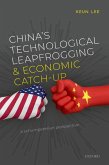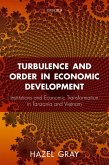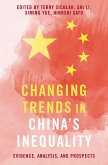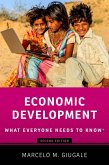Chapters 1 and 10 from this book are published open access and free to read or download from Oxford Academic. After the miraculous economic growth known as the Beijing Consensus, China is now facing a slowdown. The attention has moved to the issue of the middle income trap. This book deals with this interesting issue in the context of China. It also discusses China's limitations and future prospects, especially after the rise of a new "cold war" between China and the US, namely the question of whether China would fall into another trap called the "Thucydides trap", or conflict with the existing hegemon as a rising power. In sum, this book plays around three key terms, namely, the Beijing Consensus, the Middle Income Trap, and the Thucydides trap, and applies a Schumpeterian approach to these concepts. It also conducts a comparative analysis that examines China from an "economic catch-up" perspective. An economic catch-up starts from learning and imitating a forerunner, but finishing the race successfully requires taking a different path along the road. This act is also known as leapfrogging, which implies a latecomer doing something different from, and often ahead of, a forerunner. Technological leapfrogging may lead to technological catch-up, which means reducing the technological gap, and then finally to economic catch-up in living standards (per capita income) and economic size (GDP: economic power). This linkage from technological leapfrogging and catch-up to economic catch-up corresponds exactly with a similar linkage from the Beijing Consensus to escaping (or not) the middle income and the Thucydides traps. One conclusion from this book is that China's successful rise as a global industrial power has been due to its strategy of technological leapfrogging, which has enabled China to move beyond the middle income trap and possibly the Thucydides trap, although at a slower speed.
Dieser Download kann aus rechtlichen Gründen nur mit Rechnungsadresse in A, B, BG, CY, CZ, D, DK, EW, E, FIN, F, GR, HR, H, IRL, I, LT, L, LR, M, NL, PL, P, R, S, SLO, SK ausgeliefert werden.









